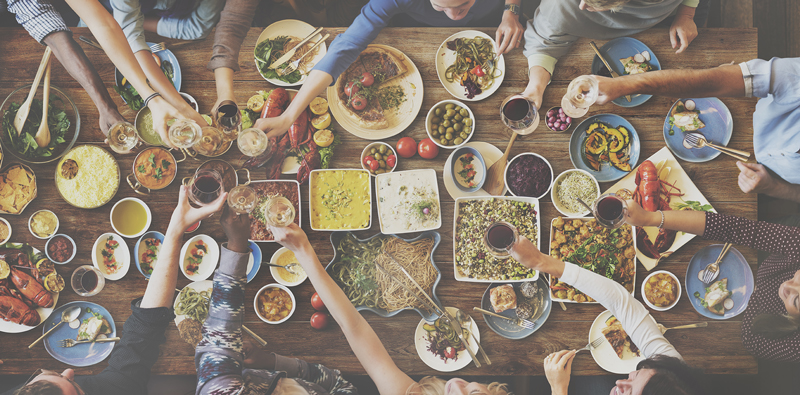Only in an app-happy society does this make sense: UGottaEat is a free app for ioS and Android devices for friends and family who want to share already or soon-to-be prepared food. Food startups based in the Cleveland area are also potential candidates. Users post free meals up for grabs, such as leftover cookies from a bake sale. Cooks trying to use up ingredients already on hand can snap a picture and upload it to UGottaEat, then choose how to share or supplement those ingredients with other users, whether through delivery, pick-up or dine-in. The founders’ intent is to encourage more people to cook at home.
The gift of pizza can be delivered to your door without the actual pie showing up. Donato’s Pizza has launched a new gift card delivery service, where cards that have been ordered online can be delivered as a last-minute gift idea or to cover awkward situations, such as showing up at a holiday party empty-handed. All 160 locations of the Columbus-based franchise are delivering the gift cards, which come in $10, $25 and $50 denominations—with or without ordering any accompanying food.
By 2025, it’s expected that 20% of all grocery sales ($100 billion) will come from online shoppers, according to data from the Food Marketing Institute and Nielsen. Today that figure is right around 2%.
Companies like Coca-Cola and Kellogg are revamping their traditional delivery methods in order to embrace direct-to-consumer delivery methods, FoodDive reported. Think of the impact on brick-and-mortar stores if our snacks and beverages cut out the middleman.
The first, but most likely not the last, shake-out in the grocery business after Amazon bought Whole Foods is Door to Door Organics, whose CEO told Supermarket News that the acquisition has made investors in the space nervous and therefore, less likely at this time to invest with the lesser-known players.
Baby Food may be the next battlefield for delivery meal kits. In addition to “grown-up meal kits” adding baby food to their offerings, a whole slew of start-ups are tossing their bowl in the ring, according to Mashable, including Raised Real, Yumi and a celebrity offering (no, it’s not Gwyneth Paltrow’s Goop) by actress Jennifer Garner called Once Upon a Farm. Baby food, by the way, is a $55 billion industry, and a healthy, organic do-a-little-yourself approach (such as blending the ingredients in a prepared cup) is perfect for millennial parents, who value authenticity.
The average American household spent about $600 a month on food in 2016, according to the Bureau of Labor Statistics. About 44% of which was spent outside the home at restaurants and bars.
And NPD’s Eating Patterns in America has this to say: “Consumer eating attitudes and behaviors are evolving in ways that transform long-standing consumption patterns. Shifting demographics, changing meal composition, more fresh foods and new attitudes on beverages all create challenges for growth. Today’s macro environment isn’t generating organic growth for the food and foodservice sectors so we’re dealing with a 1% world.”
In addition to changing consumption patterns, consumers are also making fewer visits to restaurants opting to stay at home or spend their money on experiences or other items, the report says. As a result, restaurant visits have declined for the last several quarters; but evidence of the country’s stay-at-home culture is that foodservice delivery is growing.


